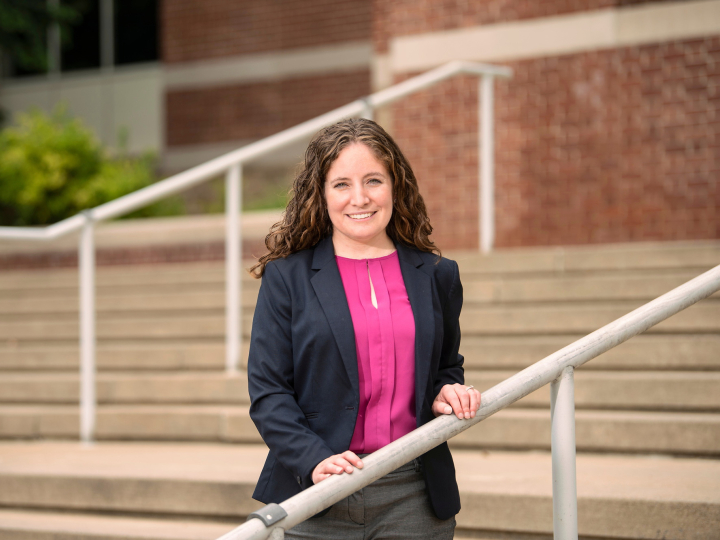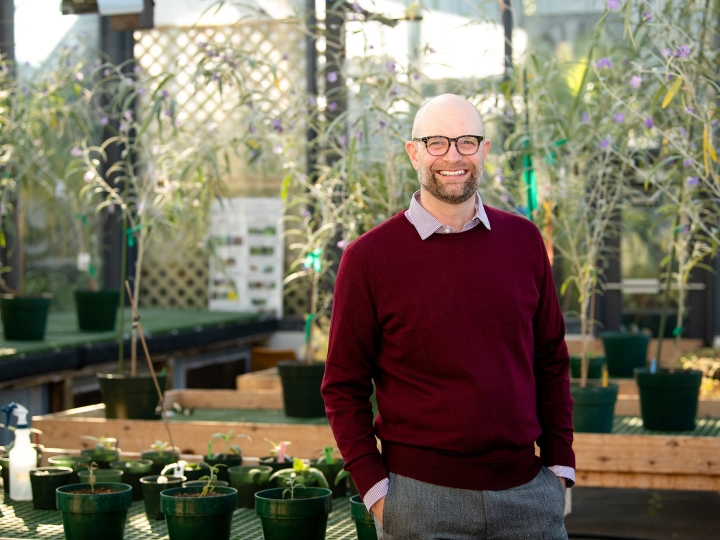With Fulbright, Bucknell Professor Seeks Ways to Advance Math Education in Ecuador
September 14, 2017
A Fulbright grant has brought Professor Nathan Ryan to Quito, Ecuador, with a charge to help expand the ways math is taught in that country — and back at Bucknell.
The mathematics professor is spending the fall semester at the University of San Francisco of Quito, where he is teaching facets of math not offered at the private, liberal arts college in Ecuador's capital city, as well as advising undergraduate student researchers and training students for upcoming international mathematics competitions.
"There are more math Ph.D. holders at this university than there are in the rest of Ecuador combined, but there are still very few overall and not a single number theorist, which is my main research area," Ryan said. "I hope to work with Ecuadorian students and get them to a level where they might consider going abroad to further their education, perhaps in number theory."
He's also leading seminars for faculty at the university and informal workshops for local high school teachers, where he's sharing his own insight and facilitating conversations with his Ecuadorian colleagues about effective methods for teaching calculus. Ryan plans to share instructional methods and practical classroom activities he's learned not only at Bucknell, but also through outreach in the Lewisburg community. He co-organizes the Upper Susquehanna Valley Math Circle, a regular series of events that challenges local high school students to dip their toes into mathematical topics such as cryptography, infinity and game theory.
"I don't want to come in and pretend I have all the answers," Ryan said. "This is a chance to have a conversation with people who are invested in teaching and thinking about teaching math, specifically to undergraduates."
College-level calculus, Ryan explained, has traditionally been geared toward engineers and physicists, but it's become an increasingly important subject for students of economics and natural sciences as well. Math educators, including Ryan and his colleagues at Bucknell, have begun examining how different instructional methods might better serve and prepare students of these disciplines for their careers.
"The idea is to hit the population at the right level with the right educational content," Ryan said. "We're also asking about how to actually convey that information. How much should be done digitally? How much should be done in lecture? What kind of group and active learning activities do you need to maximize the benefit for students?"
His Fulbright-backed residency in Ecuador marks the third opportunity for an extended research trip to South America in a decade for Ryan, who lived in Venezuela, Panama and Argentina as a child when his parents worked for the Department of State. A 2009 Fulbright took him to Montevideo, Uruguay, where he collaborated with mathematician Gonzalo Tornaría on research relating to number theory. During a sabbatical in 2014–15, he returned to the same South American capital, this time backed by a grant from the National Science Foundation and support from Bucknell's provost.
In addition to contributing to the development of mathematics education locally, Ryan said he likewise hopes his experience will improve his own teaching and thereby educational outcomes for his students back at Bucknell.
"The high school teachers and university professors I'm working with have taught calculus for many years to a different population," he said. "Maybe there are things that work for this population that I've never thought to apply to the Bucknell population. Each of us has a collection of experiences and backgrounds and the idea is to exchange them and have a discussion."

